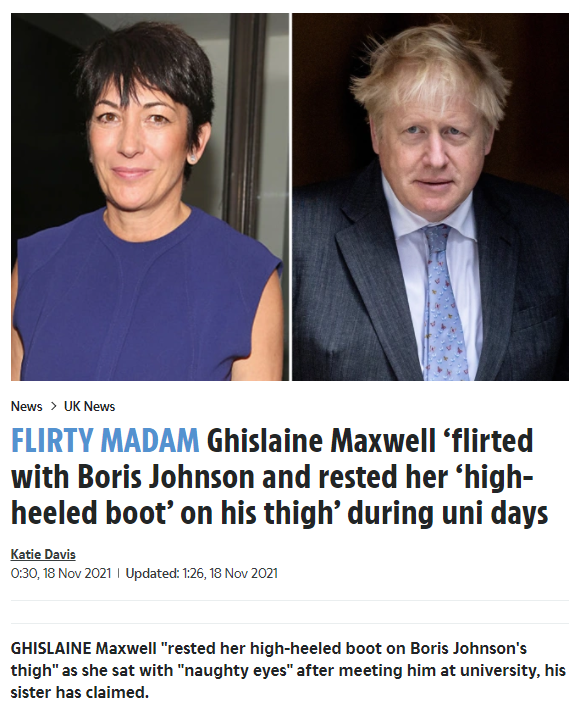
#THREAD
'Social work & the #COVID19 pandemic: International insights' - book review by Natalia Phillips.
2020 brought a series of major international crises in the form of climate emergency, human rights violations, & the global coronavirus pandemic.
…rnals-sagepub-com.hallam.idm.oclc.org/doi/full/10.11…
'Social work & the #COVID19 pandemic: International insights' - book review by Natalia Phillips.
2020 brought a series of major international crises in the form of climate emergency, human rights violations, & the global coronavirus pandemic.
…rnals-sagepub-com.hallam.idm.oclc.org/doi/full/10.11…
These interlinked global emergencies accentuate the division & alienation of the most disadvantaged in society caused by modern capitalism.
Governments’ biopolitics surrounding #COVID19 revolves around the prioritisation of “economy” & neglect of Health & Social Care services.
Governments’ biopolitics surrounding #COVID19 revolves around the prioritisation of “economy” & neglect of Health & Social Care services.
Structural racism prevails & those who require state support are the ones left helpless & suffering the most in these unprecedented times.
'Social Work and the Covid-19 Pandemic' is a collection of collaborative work of many academics, social work practitioners & activists.
'Social Work and the Covid-19 Pandemic' is a collection of collaborative work of many academics, social work practitioners & activists.
Shared knowledge & ideas have been assembled in the form of a book. Its aims are to present & provide an overview of the challenges social work faces in the light of #Covid19 & to shape the understanding of what role social work could, & should, play in such critical times.
The collection is divided into three well-structured sections.
The first section provides crucial background information about the biological, environmental, & economic factors that underpin the very core of the crisis we are undergoing.
The first section provides crucial background information about the biological, environmental, & economic factors that underpin the very core of the crisis we are undergoing.
The extinction of certain species, the unavailability of certain foods & the distorted relationship between humans & nature have created optimal conditions for the formation & transmission of the so called “crowd diseases”.
The combination of poverty, overcrowded working & living conditions & the proximity of people enable the virus to spread at an inevitably fast pace &, consequently, has an astonishingly damaging impact on the lives of the most disadvantaged.
Social work, as it involves bringing support to the most marginalised, has been impacted by questionable policies of many governments whose priorities have not been aligned with those in need.
In the first part of the collection, the contributors emphasize social work's urgent action against deeply rooted, perpetual societal inequality.
They highlight that the current crisis is a crucial moment which could lead to a much fairer social order.
They highlight that the current crisis is a crucial moment which could lead to a much fairer social order.
In their eyes, the time has come for social work, as an important frontline profession, & the state to re-discuss the socio-political dynamics & value of the current form of democracy & find new ways to break down the ubiquitous inequalities that penetrate societies worldwide.
The second section provides touching accounts of the international responses across the world: from the inconsistent & thoughtless responses in the USA, to the active sharing of knowledge & experience of social work professionals in Chile & “popular social work” action in Greece.
It is evident the worldwide responses to this crisis vary according to the government's approach in each country & the local culture and local level of solidarity eg South Korean social workers, to support live-in service users, quarantined alongside them in residential centres.
The last section focuses on the worldwide social divisions & inequalities that have expanded during the pandemic & emphasises the role of social workers as activists for change: showing how neoliberal social work, based on a business-like delivery of help & services, has failed.
The isolation, poverty & social division has intensified the discrimination of minority groups, multiplied the cases of domestic violence, reinforced women's oppression & generated mental health problems in many people.
Therefore, there is a tremendous need to return to “collective” approaches in social work, where both communities & social workers commit to acting together to implement change & fight marginalization in society.
Hence, a close engagement with movements such as #BlackLivesMatter or #ExtinctionRebellion is essential.
The authors stress throughout that there must be no return to “business as usual” because it would mean going back to growing & harmful #austerity & #inequality.
The authors stress throughout that there must be no return to “business as usual” because it would mean going back to growing & harmful #austerity & #inequality.
The strength of the collection lies in its structure & language, making it accessible to all. The wealth of examples of contemporary societal problems offered by contributors, together with the impact of the pandemic, paint a vivid & informative picture of the world we live in.
Whilst the contributors prioritize their attention to the difficulties social workers face across the world, they also draw on the beauty of humanity & solidarity that have been at the core of many communities.
The pandemic has disproportionately affected those in working class & minority communities, exacerbating existing inequalities.
The book provides an excellent understanding of the complex world of politics & societal &, ultimately, human dilemmas.
policy.bristoluniversitypress.co.uk/social-work-an…
The book provides an excellent understanding of the complex world of politics & societal &, ultimately, human dilemmas.
policy.bristoluniversitypress.co.uk/social-work-an…
This excellent & inspiring book review (quoted in the above #thread) was written by Natalia Phillips @NAMikolajczyk.🙏
Here, Natalia discusses the need for social workers to work together against the social divisions & marginalisation of minority groups.
basw.co.uk/resources/psw-…
Here, Natalia discusses the need for social workers to work together against the social divisions & marginalisation of minority groups.
basw.co.uk/resources/psw-…
• • •
Missing some Tweet in this thread? You can try to
force a refresh


















